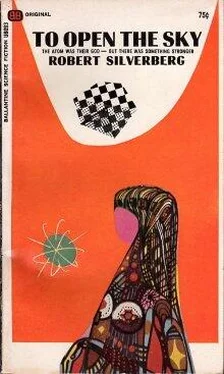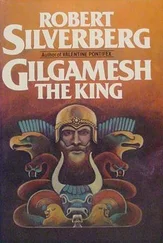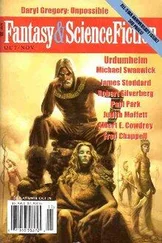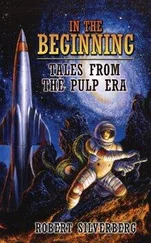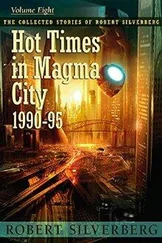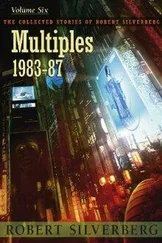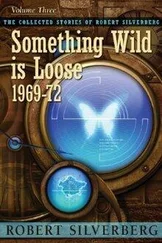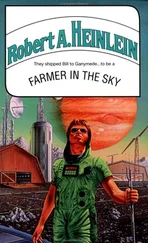Robert Silverberg - To Open the Sky
Здесь есть возможность читать онлайн «Robert Silverberg - To Open the Sky» весь текст электронной книги совершенно бесплатно (целиком полную версию без сокращений). В некоторых случаях можно слушать аудио, скачать через торрент в формате fb2 и присутствует краткое содержание. Год выпуска: 1967, Издательство: Ballantine Books, Жанр: Фантастика и фэнтези, на английском языке. Описание произведения, (предисловие) а так же отзывы посетителей доступны на портале библиотеки ЛибКат.
- Название:To Open the Sky
- Автор:
- Издательство:Ballantine Books
- Жанр:
- Год:1967
- ISBN:нет данных
- Рейтинг книги:5 / 5. Голосов: 1
-
Избранное:Добавить в избранное
- Отзывы:
-
Ваша оценка:
- 100
- 1
- 2
- 3
- 4
- 5
To Open the Sky: краткое содержание, описание и аннотация
Предлагаем к чтению аннотацию, описание, краткое содержание или предисловие (зависит от того, что написал сам автор книги «To Open the Sky»). Если вы не нашли необходимую информацию о книге — напишите в комментариях, мы постараемся отыскать её.
To Open the Sky — читать онлайн бесплатно полную книгу (весь текст) целиком
Ниже представлен текст книги, разбитый по страницам. Система сохранения места последней прочитанной страницы, позволяет с удобством читать онлайн бесплатно книгу «To Open the Sky», без необходимости каждый раз заново искать на чём Вы остановились. Поставьте закладку, и сможете в любой момент перейти на страницу, на которой закончили чтение.
Интервал:
Закладка:
It had been a massive mistake to go over Langholt’s head, Mondschein agreed. But how could a man help it? To die a little every day, while in Santa Fe they were choosing the ones who would live forever—it was intolerable to be on the outside. Mondschein’s spirit sank at the awareness that now he had almost certainly cut himself off from Santa Fe for good.
He slipped into a rear pew and stared solemnly toward the cobalt-60 cube on the altar.
Let the Blue Fire engulf me, he begged. Let me rise purified and cleansed.
Sometimes, kneeling before the altar, Mondschein had felt the ghostly flicker of a spiritual experience. That was the most he ever felt, for, though he was an acolyte of the Brotherhood of the Immanent Radiance, and was a second-generation member of the cult, at that, Mondschein was not a religious man. Let others have ecstasies before the altar, he thought. Mondschein knew the cult for what it was: a front operation masking an elaborate program of genetic research. Or so it seemed to him, though there were times when he had his doubts which was the front and which the underlying reality. So many others appeared to derive spiritual benefits from the Brotherhood—while he had no proof that the laboratories at Santa Fe were accomplishing anything at all.
He closed his eyes. His head sank forward on his breast. He visualized electrons spinning in their orbits. He silently repeated the Electromagnetic Litany, calling off the stations of the spectrum.
He thought of Christopher Mondschein living through the ages. A stab of yearning sliced into him while he was still telling off the middling frequencies. Long before he got to the softer X rays, he was in a sweat of frustration, sick with the fear of dying. Sixty, seventy more years and his number was up, while at Santa Fe— Help me. Help me. Help me. Somebody help me. I don’t want to die!
Mondschein looked to the altar. The Blue Fire flickered as though to mock him by going out altogether. Oppressed by the Gothic gloom, Mondschein sprang to his feet and rushed out into the open air.
two
He was a conspicuous figure in his indigo robe and monkish hood. People stared at him as though he had some supernatural power. They did not look closely enough to see that he was only an acolyte, and, though many of them were Vorsters themselves, they never managed to understand that the Brotherhood had no truck with the supernatural. Mondschein did not have a high regard for the intelligence of laymen.
He stepped aboard the slidewalk. The city loomed around him, towers of travertine that took on a greasy cast in the dying reddish glow of a March afternoon. New York City had spread up the Hudson like a plague, and skyscrapers were marching across the Adirondacks; Nyack, here, had long since been engulfed by the metropolis. The air was cool. There was a smoky tang in it; probably a fire raging in a forest preserve, thought Mondschein darkly. He saw death on all sides.
His modest apartment was five blocks from the chapel. He lived alone. Acolytes needed a waiver to marry and were forbidden to have transient liaisons. Celibacy did not weigh heavily on Mondschein yet, though he had hoped to shed it when he was transferred to Santa Fe. There was talk of lovely, willing young female acolytes at Santa Fe. Surely not all the breeding experiments were done through artificial insemination, Mondschein hoped.
No matter now. He could forget Santa Fe. His impulsive letter to Supervisor Kirby had smashed everything.
Now he was trapped forever on the lower rungs of the Vorster ladder. In due course they would take him into the Brotherhood, and he would wear a slightly different robe and grow a beard, perhaps, and preside over services, and minister to the needs of his congregation.
Fine. The Brotherhood was the fastest-growing religious movement on Earth, and surely it was a noble work to serve in the cause. But a man without a religious vocation would not be happy presiding over a chapel, and Mondschein had no calling at all. He had sought to fulfill his own ends by enrolling as an acolyte, and now he saw the error of that ambition.
He was caught. Just another Vorster Brother now. There were thousands of chapels all over the world. Membership in the Brotherhood was something like five hundred million today. Not bad in a single generation. The older religions were suffering. The Vorsters had something to offer that the others did not; the comforts of science, the assurance that beyond the spiritual ministry there was another that served the Oneness by probing into the deepest mysteries. A dollar contributed to your local Vorster chapel might help pay for the development of a method to assure immortality, personal immortality. That was the pitch, and it worked well. Oh,, there were imitators, lesser cults, some of them rather successful in their small way. There was even a Vorster heresy now, the Harmonists, the peddlers of the Transcendent Harmony, an offshoot of the parent cult Mondschein had chosen the Vorsters, and he had a lingering loyalty to them, for he had been raised as a worshiper of the Blue Fire. But—
“Sorry. Million pardons.”
Someone jostled him on the slidewalk. Mondschein felt a hand slap against his back, dealing him a hard jolt that almost knocked him down. Staggering a bit, he recovered and saw a broad-shoul-dered man in a simple blue business tunic moving swiftly away. Clumsy idiot, Mondschein thought. There’s room for everyone on the walk. What’s his hellish hurry?
Mondschein adjusted his robes and his dignity. A soft voice said, “Don’t go into your apartment, Mondschein.”
Just keep moving. There’s a quickboat waiting for you at the Tarrytown station.”
No one was near him. “Who said that?” he demanded tensely.
“Please relax and cooperate. You aren’t going to be harmed. This is for your benefit, Mondschein.”
He looked around. The nearest person was an elderly woman, fifty feet behind him on the slidewalk, who quickly threw him a simpering smile as though asking for a blessing. Who had spoken? For one wild moment Mondschein thought that he had turned into a telepath, some latent power breaking through in a delayed maturity. But no. It had been a voice, not a thought-mes-sage. Mondschein understood. The stumbling man must have planted a two-way Ear on him with that slap on the back. A tiny metallic transponding plaque, perhaps half a dozen molecules thick, some miracle of improbable subminiaturization—Mondschein did not bother to search for it.
He said, “Who are you?”
“Never mind that. Just go to the station and you’ll be met.”
“I’m in my robes.”
“We’ll handle that, too,” came the calm response.
Mondschein nibbled his lip. He was not supposed to leave the immediate vicinity of his chapel without permission from a superior, but there was no time for that now, and in any event he had no intention of bucking the bureaucracy so soon after his rebuke. He would take his chances.
The slidewalk sped him ahead.
Soon the Tarrytown station drew near. Mondschein’s stomach roiled with tension. He could smell the acrid fumes of quickboat fuel. The chill wind cut through his robes, so that his shivering was not entirely from uneasiness. He stepped from the slidewalk and entered the station, a gleaming yellowish-green dome with lambent plastic walls. It was not particularly crowded. The commuters from downtown had not yet begun to arrive, and the outward-bound rush would come later in the day, at the dinner hour.
Figures approached him. The voice coming from the device on his back said, “Don’t stare at them, but just follow behind them casually.”
Mondschein obeyed. There were three of them, two men and a slim, angular-faced woman. They led him on a sauntering stroll past the chattering newsfax booth, past the bootblack stands, past the row of storage lockers. One of the men, short and square-headed, with thick, stubby yellow hair, slapped his palm against a locker to open it. He drew out a bulky package and tucked it under one arm. As he cut diagonally across the station toward the men’s washroom, the voice said to Mondschein, “Wait thirty seconds and follow him.”
Читать дальшеИнтервал:
Закладка:
Похожие книги на «To Open the Sky»
Представляем Вашему вниманию похожие книги на «To Open the Sky» списком для выбора. Мы отобрали схожую по названию и смыслу литературу в надежде предоставить читателям больше вариантов отыскать новые, интересные, ещё непрочитанные произведения.
Обсуждение, отзывы о книге «To Open the Sky» и просто собственные мнения читателей. Оставьте ваши комментарии, напишите, что Вы думаете о произведении, его смысле или главных героях. Укажите что конкретно понравилось, а что нет, и почему Вы так считаете.
